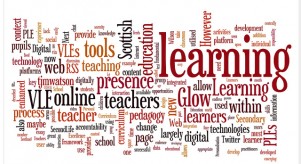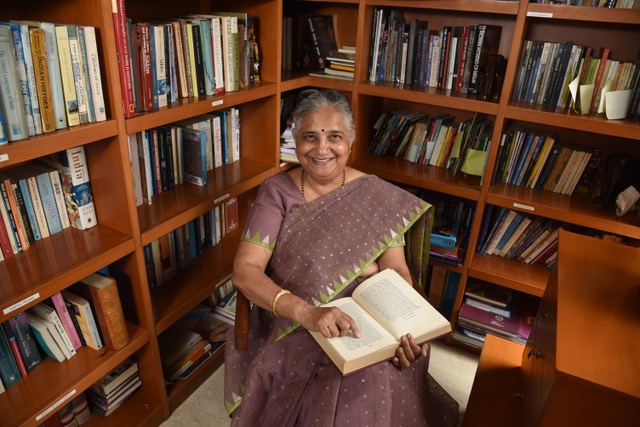Education and Technology
Article By Gurpreet Virdee
 Whether you think it’s good, bad or ugly, education has become irrevocably entwined with technology. No classroom is complete without the ubiquitous digital projector and every self-respecting educationalist has a trusty laser-pointer. Arguably, PowerPoint is the application of choice used to spread enthrallment and tedium in equal measure. Online maps, interactive videos, “gamification” (computers games designed for more than entertainment) have all become an integral part of any “learning journey”. It sounds great but like everything in life, there are positives, negatives and something interesting about all of the technology used.
Whether you think it’s good, bad or ugly, education has become irrevocably entwined with technology. No classroom is complete without the ubiquitous digital projector and every self-respecting educationalist has a trusty laser-pointer. Arguably, PowerPoint is the application of choice used to spread enthrallment and tedium in equal measure. Online maps, interactive videos, “gamification” (computers games designed for more than entertainment) have all become an integral part of any “learning journey”. It sounds great but like everything in life, there are positives, negatives and something interesting about all of the technology used.
The Great Library of Alexandria in Egypt once contained the largest collection of knowledge in the (then) known world. We know that scientists and philosophers such as Euclid, Hypatia and Archimedes, not to mention Buddhists and Persian astrologers, came from far and wide to teach, learn and share their knowledge. Alexandria was for hundreds of years a great cultural centre where the knowledge of different cultures came together in a great eclectic synthesis of philosophy, science, religion and art.
But in spite of this, information in those times was not as widely available as it is today, when the collective knowledge of human accomplishment is available to anyone with a device capable of connecting to the Internet. Want to know how to get to Llandudno? Face it; you’d be lost without Google maps! Geography teachers across the world must surely turn their eyes and palms upwardsin thanks. Think music, art, history, science, horticulture, languages, construction – in every field there is a webpage, podcast, interactive game and video that is available to further the knowledge of the seeker.
Schools seem the most obvious place to have technology and it has had enormous benefits in stimulating young people. All of the things mentioned above have made knowledge come to life. It has also, arguably, reduced patience amongst some of the young and made them have unreasonable expectations about how quickly they should be learning. Whilst I would like to say “It is the responsibility of the learner to learn”, education is more of an unequal partnership. Learners need to use their imagination and effort to push the knowledge and understanding of others into their own heads. Technology does not necessarily make learning easier or the comprehension of any subject matter quicker.
In addition, those who teach with technology must keep up-to-date with it and this means that the delivery of their information must also be altered. This all takes time and every teacher will tell you it is the one thing they need more of, especially for themselves. While change is constant in the world, constant change in any type of teaching system is counter- productive for its students.
Lastly, communication has been greatly enhanced in recent years with smartphones that can receive emails, tweets and Facebook messages. However, any child over the age of 11 who admits to not having a smartphone must feel profoundly awkward. This is troubling, but the greater concern is if young people start to find face- to-face interaction increasingly difficult. Or, if they are absorbed by technology while out in nature, their capacity to experience its great and subtle moments may be dimmed. Perhaps then, with great mental stimulation comes the need to regularly disconnect from the outside world and quietly reflect on what has actually been learnt and experienced.
However, a number of questions still remain: do machines make us better educated? What is the aim of education and what is an educated person?
The Greek philosopher Plato held that education was not about putting knowledge into the mind of the student, but drawing out or educing the wisdom we all inherently have within us.
In a similar vein, the great Indologist Heinrich Zimmer once said that while for the West knowledge is about information, in the East it is about transformation. Perhaps it is time to incorporate a more transformative approach into Western education, whereby success is seen in terms of a more rounded, happy, truly educated and therefore free human being. If technology can assist in this cause, all well and good. But it is a mistake to see it as the driving force. Real education is something more difficult, more challenging, and more truly human.
Image Credits: By Tess watson | Flickr | CC BY 2.0
The entity posting this article assumes the responsibility that images used in this article have the requisite permissionsImage References
By Tess watson | Flickr | CC BY 2.0
Read the original article on http://www.newacropolisuk.org/shares.php?shareid=3
Permissions required for the publishing of this article have been obtained




What do you think?